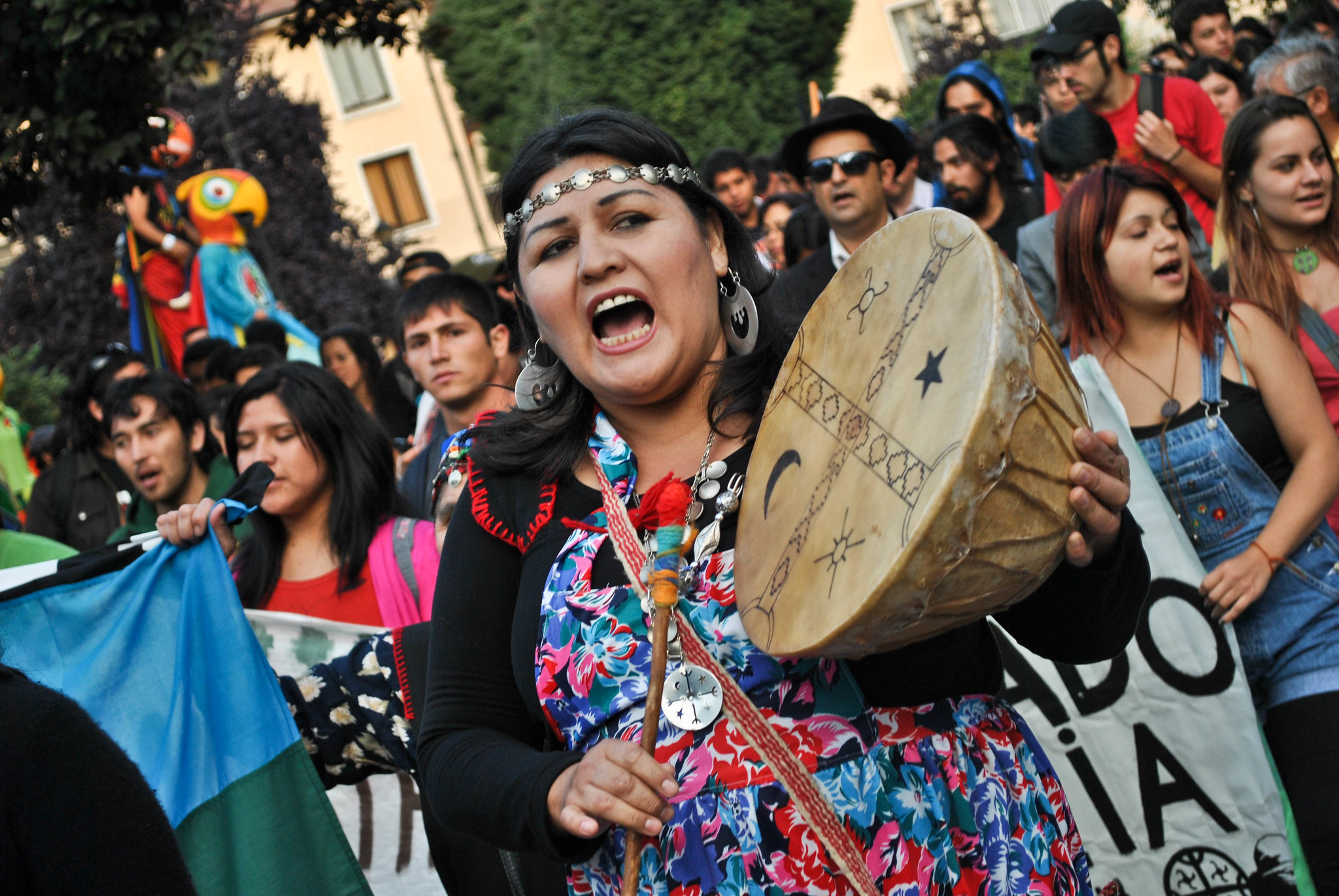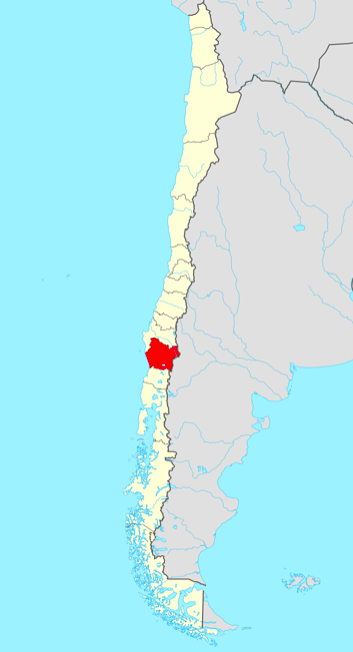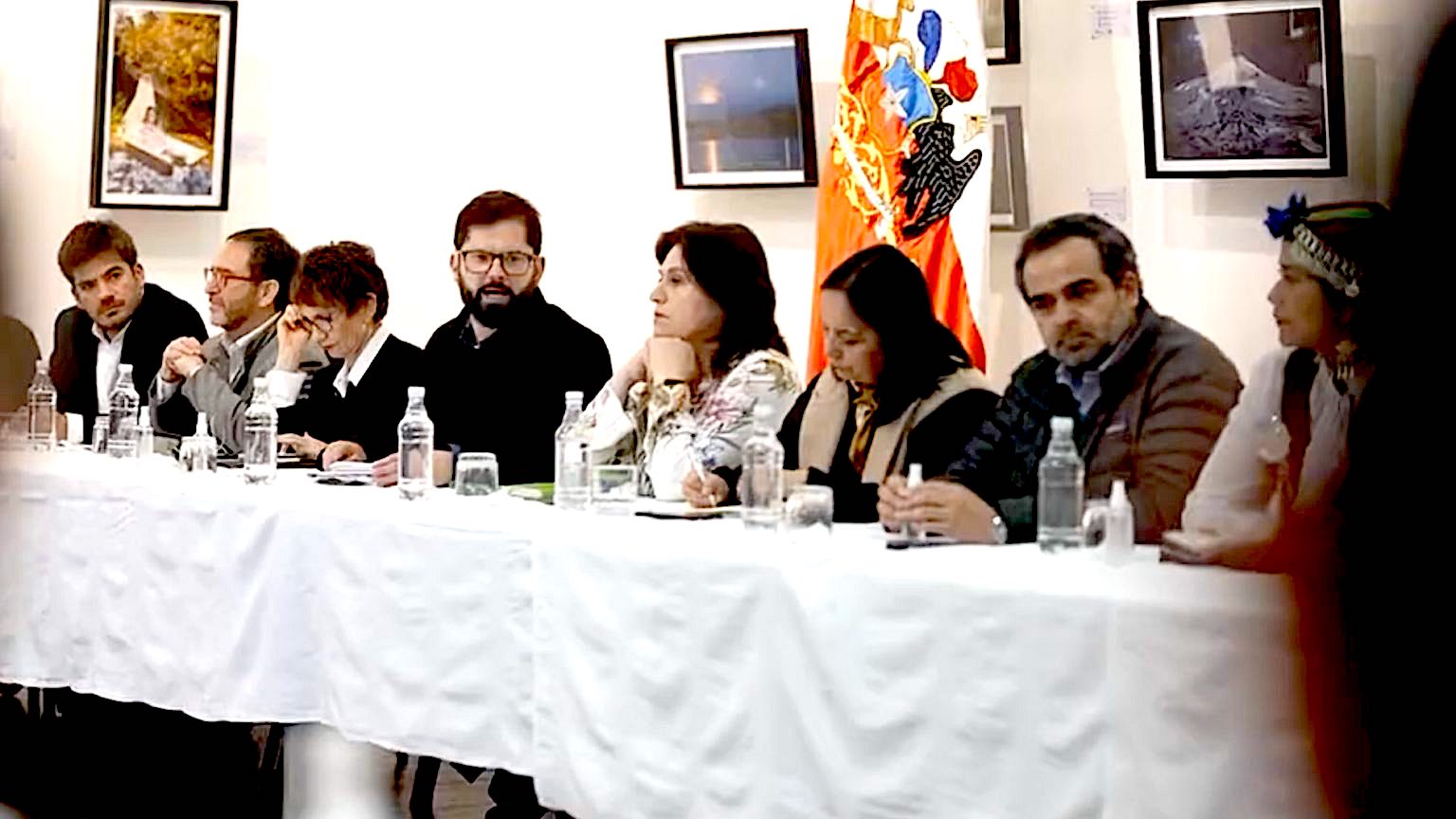After eight months in office, the country’s progressive president began fulfilling a campaign promise to find a solution to the Mapuche Indigenous communities’ historic claims, Tanya Wadhwa reports.

Mapuche demonstration in 2012. (Esteban Ignacio./Flickr, CC BY-ND 2.0)
By Tanya Wadhwa
Peoples Dispatch
Chilean President Gabriel Boric on Nov. 11 announced the creation of a special commission to return to the Mapuche Indigenous communities the lands that they have historically laid claims to in the country’s Araucanía region. The announcement took place during the president’s first visit to Araucanía since he took office in March.
During a meeting with Mapuche leaders, Boric proposed creating a Commission for Peace and Understanding to settle the Chilean state’s historic land debt with the Mapuches and solve over a century-old conflict between the Chilean State and the Mapuche communities.
Following the meeting, Boric reported that the commission would begin functioning in March 2023 and would be led by Víctor Ramos, who is currently in charge of the government’s Good Living Plan.

The Araucanía Region in Chile. (Karte: NordNordWest, Lizenz, CC BY-SA 3.0, Wikimedia Commons)
The head of state added that the commission would have a specific mandate to clearly determine the Mapuche peoples’ demand for land and propose concrete mechanisms with specific deadlines to settle this debt.
“This commission will take the recommendations that national and international organizations have made to seek a solution to the conflict in the region, and once and for all, we will make them a reality,” the president vowed.
“It will be a commission with an open agenda, where everyone will be able to put forward their points of view,” he added.
Boric explained that land registries would be carried out for all lands that were usurped by the Chilean state from the 19th century onwards. However, he clarified that it would not be possible to return all the land, nor would it be possible to complete the work before the end of his term in 2026.
He said that there are many cities in southern Chile that were built on land that was once Mapuche and these cities must be preserved. He added that many people who do not belong to the Mapuche communities settled in the area and took root and their rights must also be taken into account.
In this regard, the president emphasized that it is vital to seek an understanding and compromise to build a lasting peace and achieve a peaceful coexistence that both Araucanía and Chile need.
The Chile-Mapuche Conflict
Araucanía is home to the Mapuche Indigenous communities, who have been in conflict with the Chilean state since the 1860s. Since the return of democracy in the 1990s, the communities have been demanding the restitution of their ancestral lands, lost during the Occupation of the Araucanía (1861–1883) and the Conquest of the Desert (1870-1884). Much of these lands are currently in the hands of private extractive and logging companies.
In recent years, the Mapuche peoples have increasingly been resisting the dominance of multinational forestry companies in the region, demanding return of their lands, greater autonomy and recognition of their rights.

Chilean President Gabriel Boric, fourth from left, meeting with Mapuche leaders in the country’s Araucanía region earlier this month. (Screenshot by People’s Dispatch)
Since last year, tensions have escalated between Mapuche activists and Chilean authorities. The government has responded to the situation with militarization of the region.
There have been various episodes of violence in the area that have taken the lives of community members at the hands of state security forces, as well as non-Indigenous people and law enforcement agents.
During his election campaign, Boric had promised to end militarization and promote dialogue to find a solution to the historic conflict. Nevertheless, following his inauguration, he followed in the footsteps of his predecessor conservative Sebastián Piñera and declared a state of emergency in the country’s Southern Macrozone.
Last week, after eight months in office, the progressive president took initial steps towards resolving the situation in the region.
Tanya Wadhwa is a correspondent with Peoples Dispatch.
This article is from Peoples Dispatch.

Bravo President Boric!!! Indigenous people all over the American continent – and Caribbean, have been abused for centuries and the abusers all seem to have the same racial background: WHITEs.
I like this article. If we want to move into a more just world, land stolen from indigenous people must be returned and reparation must be created for damages that European colonies have done in term of human suffering, human violence, and first and foremost cultural and social destabilization if not destruction. US, Canada, Australia, New Zealand, etc must deal with these historical issues to obtain the “legitimacy” of their nations. When I tell my folks that our country has to apologize and repair for the colonial damages, often the answer I get is, “yeah, well, than the Italians should pay for what the Roman Empire had done, just non sense… shit happens.” This thinking is not quite right; Roman Empire no longer exist, Rome had collapsed and lost its power, it was destroyed, sacked and conquered. While out nations still exist, still benefit from wealth deriving from stolen properties, resources, wealth, slavery, etc. The communities whose land was stolen, society and culture destroyed, people killed, at times starved and enslaved still exist, still suffer because of that. What Pelosi has done in Taiwan has brought back to life the issue of territorial legitimacy, the importance of history, the importance of the desire of justice and independence of ethnic groups. To justify the condemning of Russia for invading Ukraine and size part of its territory (although, unlike the indigenous people in US, the local Ukranian communities agreed to be part of the invading nation) US, Canada, Australia, New Zealand, UK, etc must deal/address their illegitimate invasion, land appropriation, violence, wars, etc. There is no point moving forward, talking about human rights and justice if those nations do not pay for their crime and return at least part of the land stolen. Latin and Central America, unlike North America, Australia, New Zealand, have at least distanced themselves from European culture, one step forward and toward their path to national legitimacy
I think it depends on the definition of ‘European’ – is England considered such, and what would it imply for the US, Canada, Australia and New Zealand?
And for what it’s worth, I’ve been told that, ironically, the Latin American nations, while not being European, retain a degree of European cultural norms/values that Spain and Portugal have lost, or are at the risk of losing, to Anglo-US hegemony.